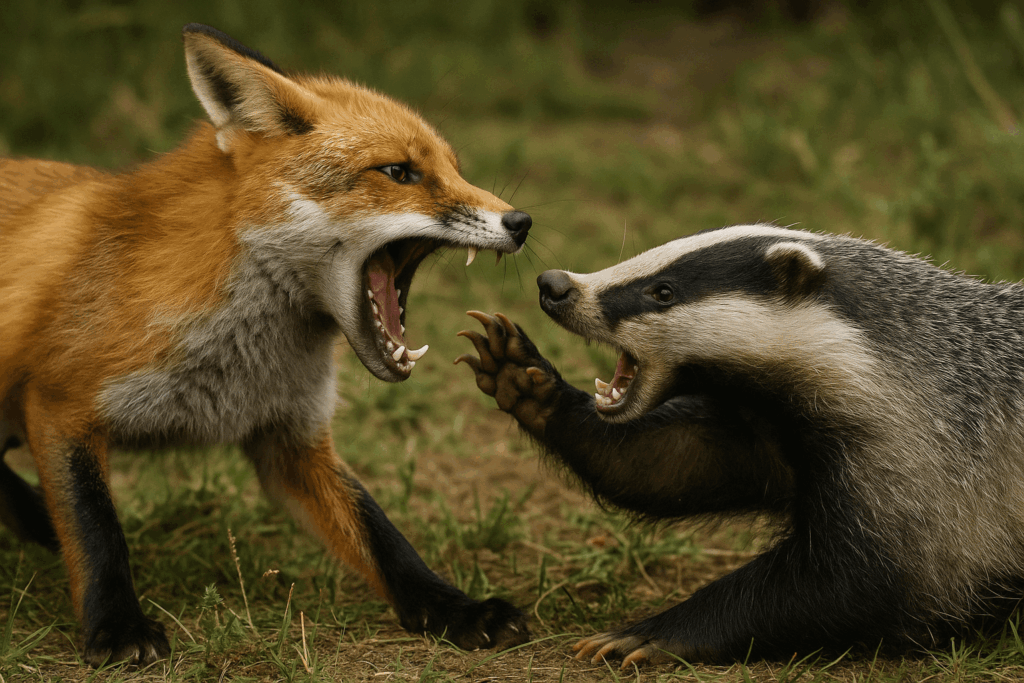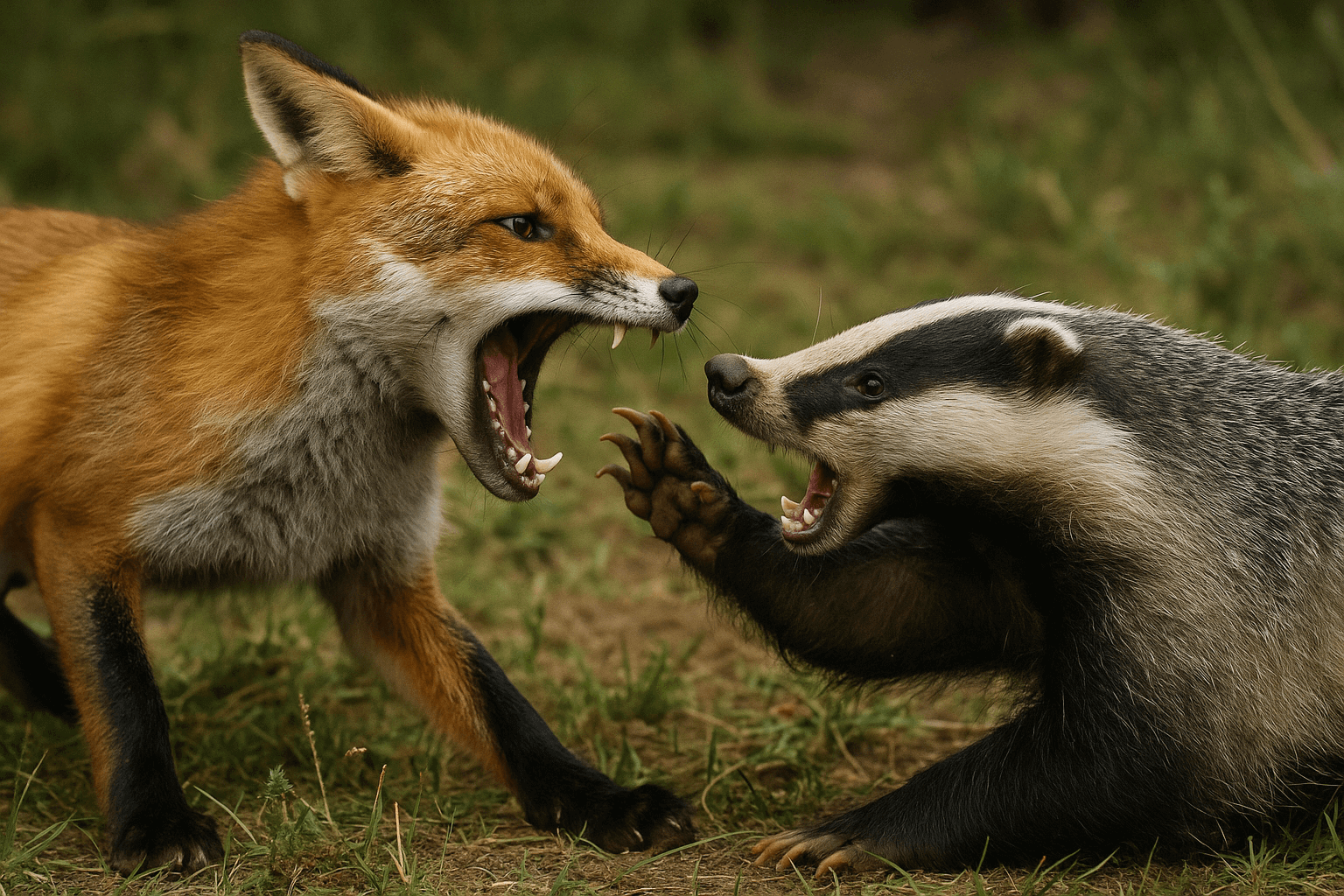The Vital Importance of Self-Defence: Lessons from Nature’s Predators for Modern Realities

In a world where confrontations arise unexpectedly, many people cling to hope that staying passive will decrease aggression. They think:
“If I just stay calm and don’t fight back, the threat will pass.”
“Maybe if I just don’t hit him and I just stay here nicely, he won’t hit me.”
Unfortunately, that isn’t the way the world works. When the weaker animal retracts its claws completely, predators don’t suddenly show mercy.
In fact, when you have absolutely no weapons or will to defend yourself, they take more than they need because they realise there are no limits and no consequences.
Self-defence isn’t just a skill; it’s a survival imperative. In this article, we’ll explore the value of self-defence, backed by insights from nature, psychological research, and real-world statistics.
Whether you’re navigating urban streets or simply seeking personal empowerment, understanding self-defence can transform vulnerability into strength.

The Psychology of Fear and Denial in Confrontations
Fear is a natural response to danger, but it often leads to denial: a mental trap where we convince ourselves that aggression won’t escalate if we don’t provoke it.
In high-stress situations, such as a stranger invading your personal space, the instinct may be to freeze or placate. However, this can signal weakness to an aggressor, emboldening them to push further.
Psychologists describe this as the “freeze” response in the fight-or-flight-or-freeze model, where inaction stems from overwhelming anxiety. Unfortunately, in modern society, where violent crimes like assaults occur at alarming rates, denial can be costly.
According to crime statistics, many victims were targeted because they behaved or appeared passive or unsuspecting, in other words – like easy prey.
Self-defence training counteracts this through building situational awareness and confidence, turning potential victims into empowered individuals.
Ironically, the more you train self-defence, the less likely you are to need to use it.
In essence, pretending a fight won’t happen doesn’t prevent it—instead, it provokes escalation.
Just as the natural environment, where a defenceless animal draws more predators, people who lack the will or skill-set to defend themselves become easier and more frequent targets.

Insights from the Animal Kingdom: Why Weakness Invites Exploitation
In the wild, predators don’t show mercy to the weak; instead, they exploit vulnerability without restraint.
Studies on animal predatory behaviours reveal that while predators may preferentially target sick or injured prey to conserve energy, they are opportunistic and will “feast more than they need” on defenceless animals when there’s no risk of repercussions.
Consider wolves and elk: research shows that wolves often select weaker individuals, but in the absence of strong defences, entire herds can suffer disproportionate losses.
A study on cougars and deer similarly indicates that predators detect and eliminate vulnerable animals.
But when prey lacks any defensive mechanisms such as claws, speed, or group resistance, predatory targeting behavior intensifies, resulting in population declines.
This “predator-prey dynamic” illustrates that removing one’s “claws” or ability to fight back doesn’t earn pity; it eliminates deterrence.
Prey animals that evolve defences, such as camouflage, warning signals, or weapons like horns, survive longer.
In multi-predator ecosystems, undefended populations face high extinction risks, since predators take advantage without fear.
These concepts translate directly to humans:
In a society with rising crime, ranging vastly from street violence to cyber risks, self-defence acts as our evolutionary “claws,” deterring aggressors and ensuring safety and survival.
Applying Nature’s Lessons: Self-Defence in the Modern World
In today’s unpredictable environment, the value of self-defense training extends beyond physical conflict—it’s about proactive protection of yourself and your loved ones in a world of increasing uncertainty and rising crime.
Self-defence is essential for personal safety, empowering individuals to handle threats ranging from drunk and drug-induced aggression to home invasions.

And unlike the animal kingdom, humans have the advantage of training and tools.
Self-defence skills prepare you for real-life scenarios where help isn’t immediate—police response times can lag, passers don’t statistically get involved in conflict they observe, leaving you to fend for yourself.
It’s not just about fighting; it’s about deterrence. Aggressors often back down when faced with resistance, mirroring how predators avoid risky prey.
For vulnerable groups, such as women or students, it’s particularly crucial — empowerment-based training has proven effective in preventing assaults.
Ultimately, embracing self-defence means rejecting extinction through passivity, aligning with nature’s rule: defend or be dominated.

Beyond Survival: The Benefits of Self-Defence Training
Investing in self-defence training yields tangible benefits, supported by research and statistics. A key advantage is boosted confidence:
A survey conducted by the National Institute of Justice indicated that 81% of women in self-defence classes reported feeling more confident in handling threats. Increased confidence reduces the risk of being targeted by predators.
Physically, training improves situational awareness, resilience, and stress management. Participants show greater self-control and lower aggression in non-threatening situations. Other benefits include:
Enhanced Physical Fitness
Training builds strength, agility, and endurance, contributing to overall health.
Better Mental Health
It improves the feeling of being in control of one’s destiny, promoting confidence, discipline, and focus.
Community Protection
Skills extend to safeguarding loved ones.
Long-Term Empowerment
In schools or communities, it prepares for adulthood and real-world dangers.

Practical Steps to Embrace Self-Defence and Avoid Extinction
Begin by enrolling in classes which focus on real-world scenarios.
Incorporate daily habits: stay alert, trust your instincts, and practice de-escalation alongside physical defences.
Remember, self-defence is a mindset as much as it is a skill-set.
The value of self-defence lies in its power to rewrite the predator-prey narrative.
Don’t wait for the attack—sharpen your claws today
STOP READING. START TRAINING.
BOOK YOUR FREE TRIAL SELF DEFENCE CLASS TODAY











